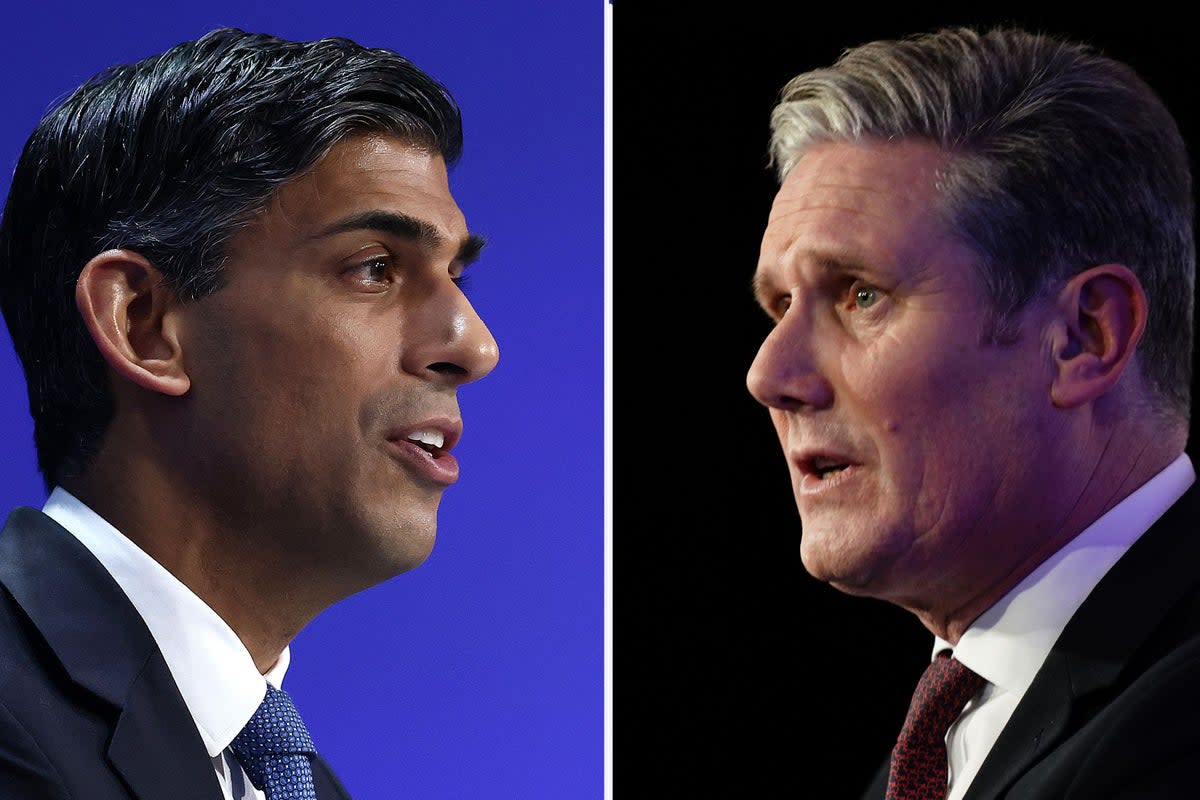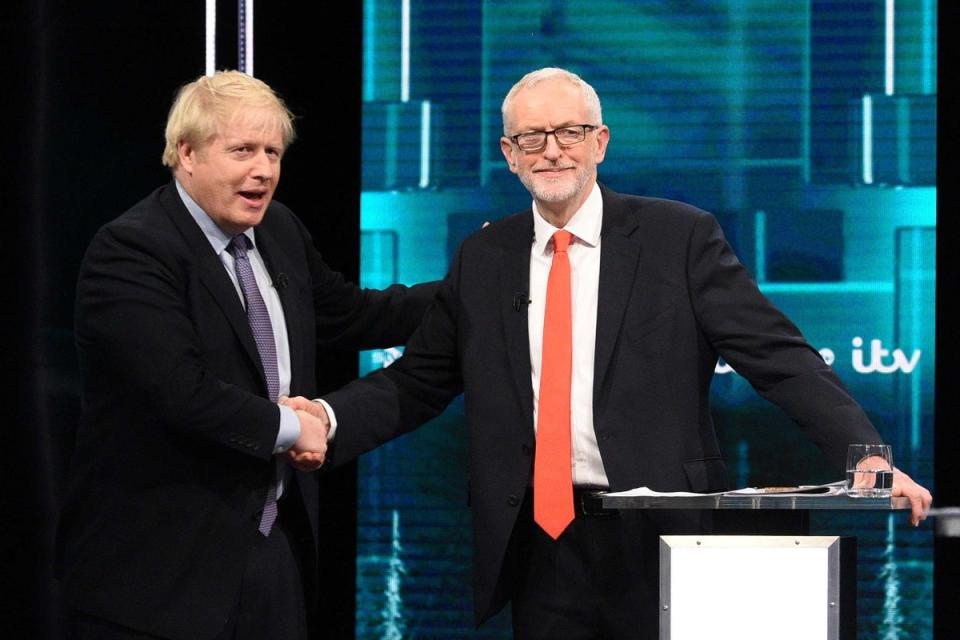General election TV debates: dates and who will take part

Rishi Sunak and Keir Starmer will face off for the last time before the general election in tonight’s BBC’s Prime Ministerial debate.
This will be the third debate between the party leaders since the prime minister called the election in late May.
Mishal Husain will host a general election debate tonight (Wednesday, June 26), in place of Sophie Raworth, who stepped down after fracturing her ankle.
It will be the last TV debate of the election campaign.
Raworth said: "The injury I picked up at the London marathon has now been diagnosed as a fracture in my ankle.
“I’m now on crutches, in a boot, and non-weight-bearing for some time."
She added she’s "delighted" Husain is hosting.
After the debate, Laura Kuenssberg and Clive Myrie will present reaction and analysis live.
The debate will be one of the last opportunities for leaders to win some more votes, beginning at 8.15pm and running until 9.30pm.
The four main party leaders – Rishi Sunak, Keir Starmer, the SNP’s John Swinney and Ed Davey, the Lib Dem leader – took part in the most recent television special on June 20. They were given 30-minute slots to answer audience questions rather than going head-to-head with each other.
Here’s what you need to know about the debates.
When is the next general election 2024 TV debate?
Head-to-head debate: Wednesday, June 26, Nottingham
Mishal Husain will now host the event involving Sunak and Starmer. This is set to be the last TV debate of the election campaign and will be broadcast from 8.15pm to 9.30pm.
Starmer had previously refused to commit to the six televised debates Sunak had proposed.
The Labour leader said he would not agree to “tearing up” the format established in previous elections “just to suit this week’s whims of the Tory Party”.
Wales and Northern Ireland have also received additional dedicated debates, with Bethan Rhys Roberts hosting the Wales election debate live from Central Square in Cardiff last Friday (June 21). and Tara Mills will be moderating the Northern Ireland debate on BBC One Northern Ireland on Thursday (June 27).
Are they any other televised debates?
Yes, there will be a Question Time special on Friday night (June 28) at 8pm on BBC1. Following complaints from Reform leader Nigel Farage after he was not invited to attend the first special, the BBC has announced a second programme.
The broadcaster said it had to reflect “the fact that it is clear from across a broad range of opinion polls that the support for Reform UK has been growing”.
The Question Time special will be hosted by Fiona Bruce from 8pm, and the Green Party has also been invited.
How have pre-general election debates worked in the past?
Television debates are a relatively new concept to the election run-up in the UK. Labour’s former prime minister Gordon Brown, ex-Tory leader David Cameron and the fromer Liberal Democrat leader, Nick Clegg, participated in the first one in 2010.
Former Labour leader Harold Wilson and Conservative prime minister Sir Alec Douglas-Home were approached in 1964 but the debate didn't materialise.
Ex-Conservative prime minister John Major and Labour leader Neil Kinnock agreed in principle to a debate in 1992 but this was called off.
Between 1997 and 2005, Tony Blair and successive opponents (John Major, William Hague and Michael Howard) did not engage in televised debates.
The 2015 general election involved a more complex arrangement of debates.
David Cameron (Conservatives), Ed Miliband (Labour), Nick Clegg (Liberal Democrats), Nigel Farage (UKIP), Nicola Sturgeon (SNP), Natalie Bennett (Green Party), and Leanne Wood (Plaid Cymru) took part.
ITV hosted a seven-way debate; the BBC broadcast a five-way debate featuring parties without the two main leaders (Cameron and Miliband); and a "challengers' debate" featuring opposition leaders was also held.

In 2017, former prime minister Theresa May chose not to participate directly in the main debates.
Leaders of other parties at that time, including Jeremy Corbyn (Labour), Tim Farron (Liberal Democrats) and leaders from smaller parties participated.
There was a mixture of debates and Q&A sessions, with leaders appearing separately.
May’s absence was contentious, with some arguing it affected her campaign negatively.
The 2019 general election returned to more traditional head-to-head debates.
The prime minister of the time, Boris Johnson (Conservatives), and Labour leader Jeremy Corbyn participated in an hour-long debate on ITV.
The BBC also hosted a head-to-head debate between the pair and a separate one involving leaders from smaller parties.
Andrew Neil also interviewed Corbyn on the BBC, and the Labour leader appeared on a Channel 4 panel discussion on climate change. A melting ice sculpture replaced Mr Johnson.


